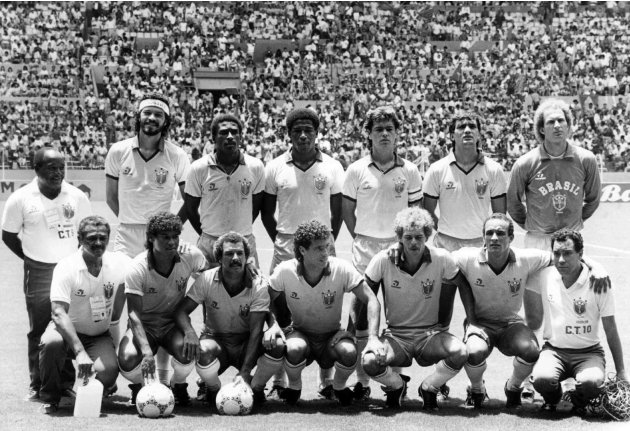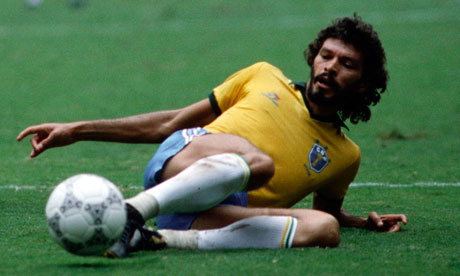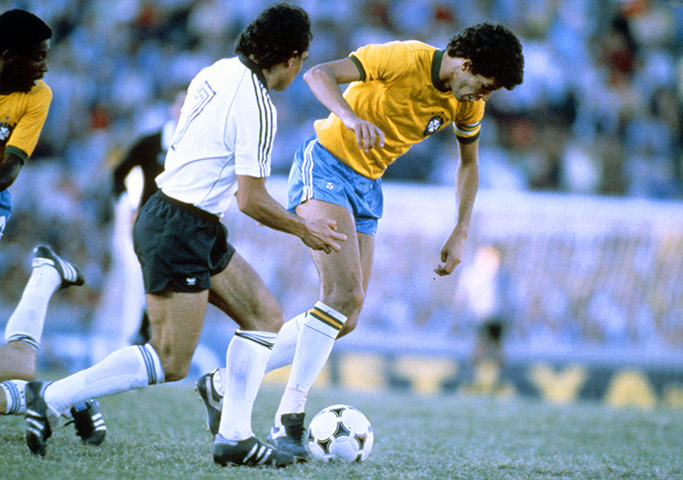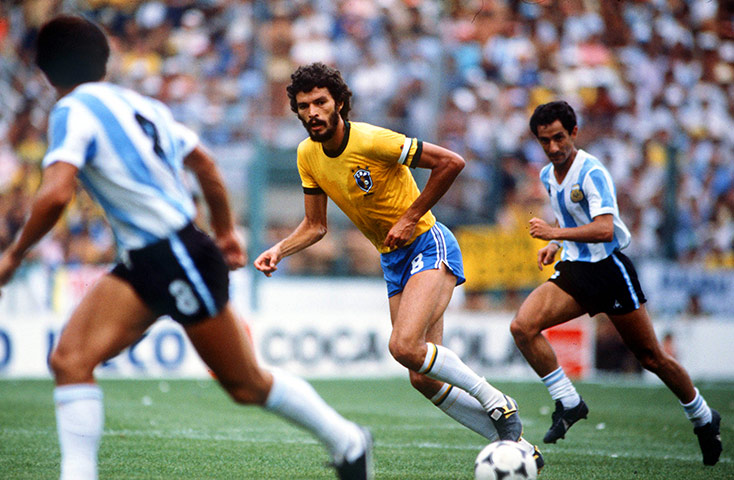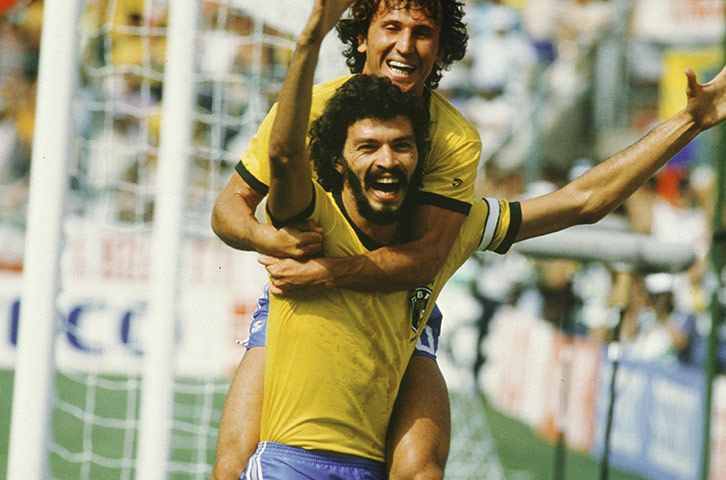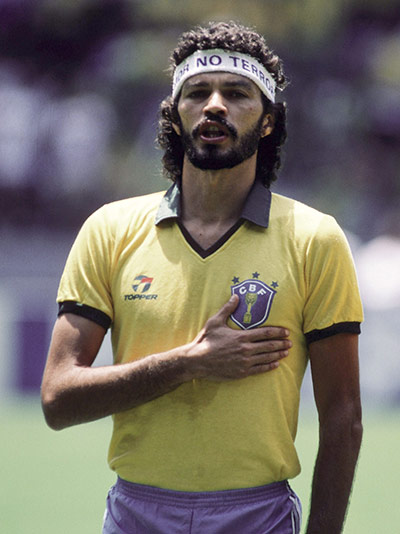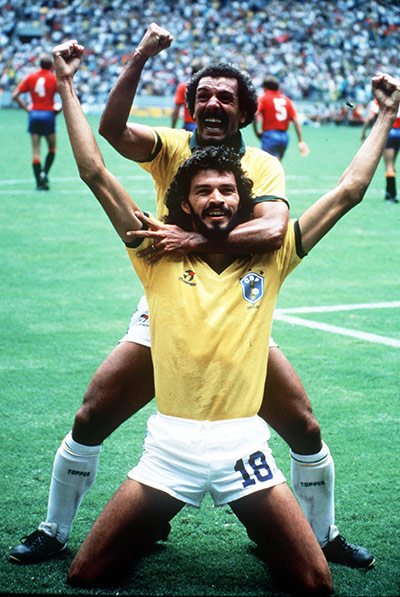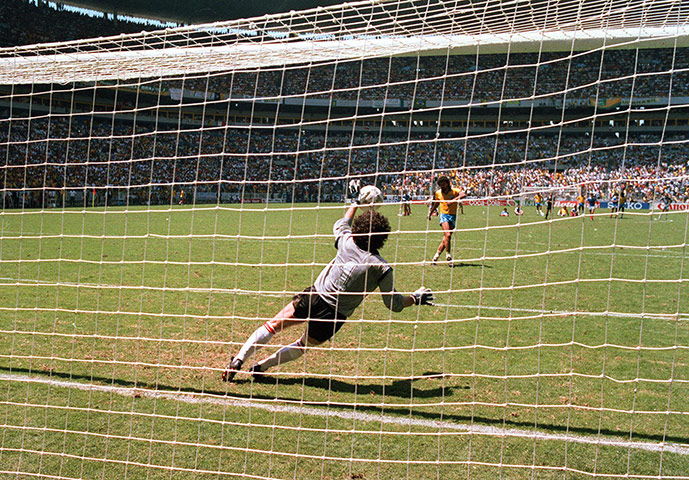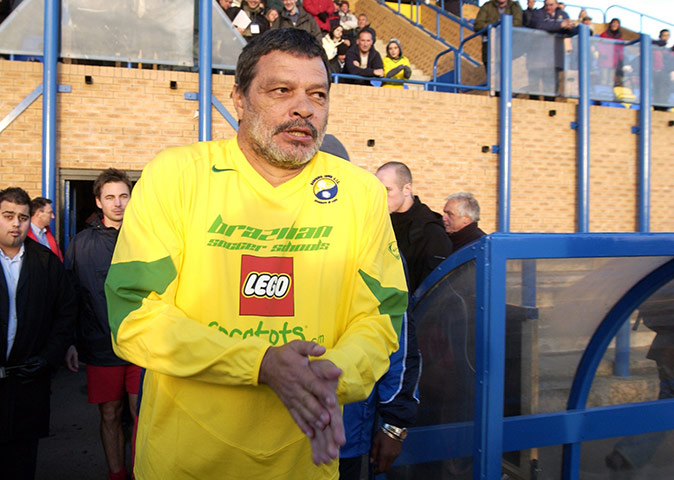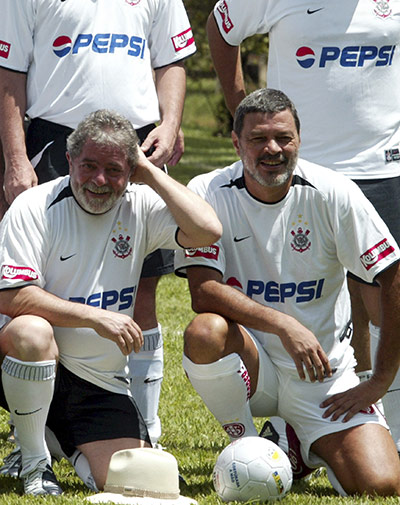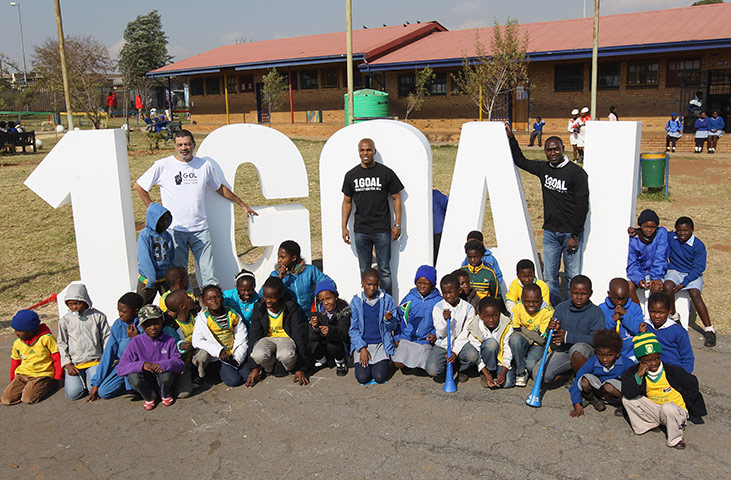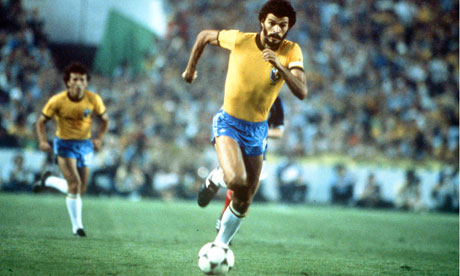Che Guevara
JF-Expert Member
- May 22, 2009
- 1,236
- 346
Socrates, the ex-Captain of the Brazilian soccer team, is dead.
R.I.P Sócrates Brasileiro Sampaio de Souza Vieira de Oliveira, 19 February 1954 4 December 2011.

Picture below:
Socrates (centre, facing camera) is mobbed by teammates Junior (6), Falcao (15) and Zico (right) after scoring Brazil's opening goal against Italy at the Sarria Stadium, 1982 World Cup.

R.I.P Sócrates Brasileiro Sampaio de Souza Vieira de Oliveira, 19 February 1954 4 December 2011.

Picture below:
Socrates (centre, facing camera) is mobbed by teammates Junior (6), Falcao (15) and Zico (right) after scoring Brazil's opening goal against Italy at the Sarria Stadium, 1982 World Cup.

